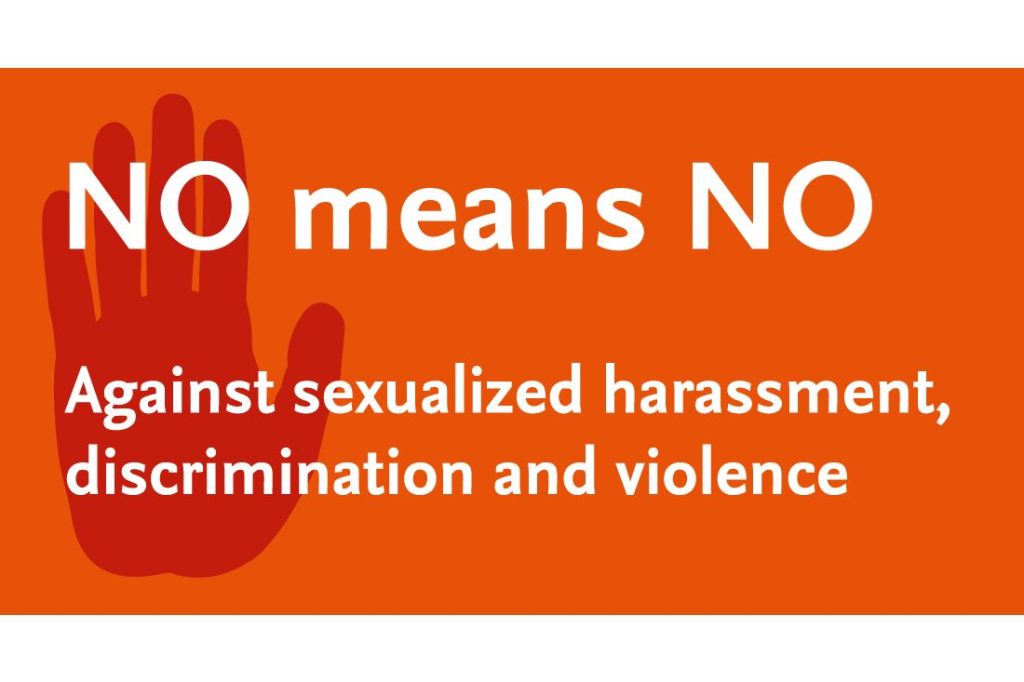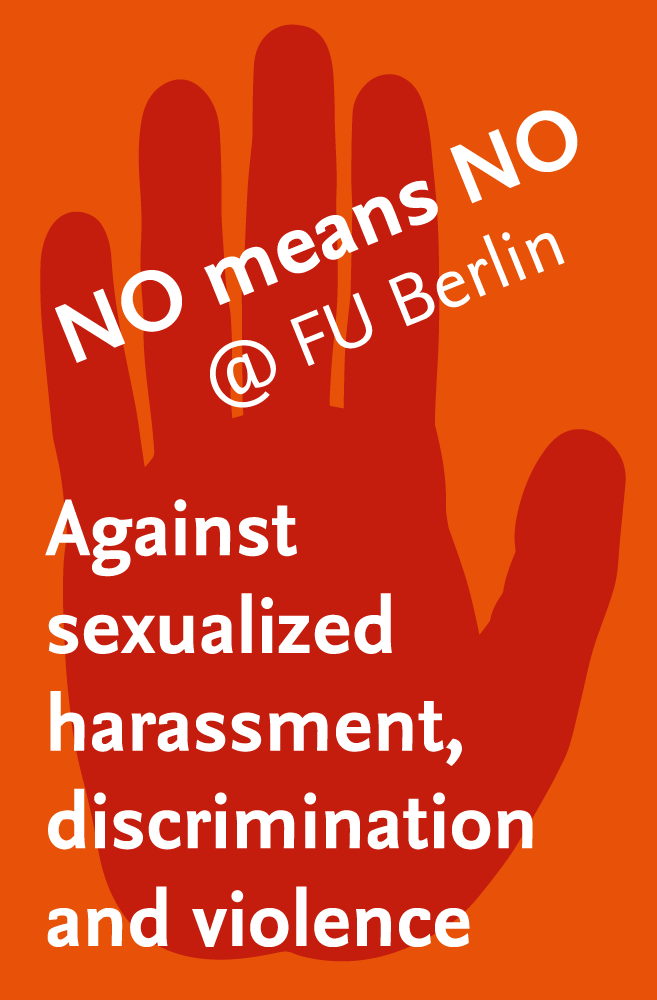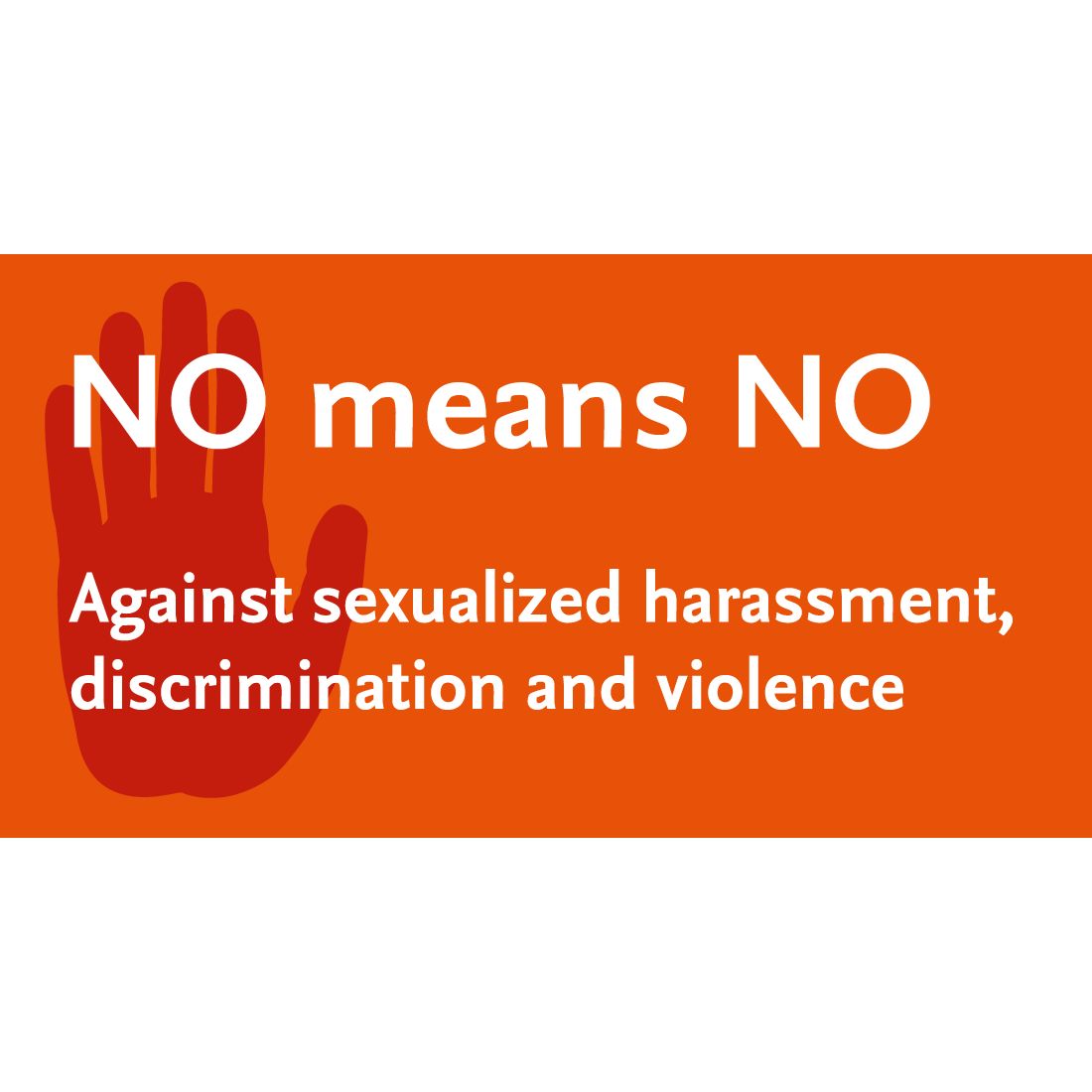
16 Days Blogathon Against Gender-Based Violence – The University of Edinburgh supports the activities around the International Day for the Elimination of Violence Against Women at German universities (November 25th) with articles from international authors. Wendy Stollberg, preliminary consultant in cases of bullying and stalking at FU, wrote about how gender equality officers support victim-survivors of sexual harassment and violence at German universities.
Who do you turn to for support at German universities as a victim-survivor of sexual harassment and violence? Often, it is hard to find any point of contact that both seems to have an official character and at the same time to be trustworthy. With some patience during your internet search, you might come across the e-mail address or phone number of the gender equality officer at your department. She (mostly they are women) states that she can be approached in cases of sexual harassment and violence. What support can you expect from her?
Gender equality officers
Before answering that, let’s have a brief look at their office. Gender equality officers operate at all public German universities. This is legally enshrined in state higher education acts. Their mandate is to support and to consult the university management and the department managements in creating and maintaining equal chances for women (!) in academia. In short, their aim is reaching gender equality at their institution. Gender equality officers are elected for a 2-to-6-year term by female members of the university. They have a suspensive veto right in management decisions and – very importantly – they act independently from the instructions by others. Each university has a chief gender equality officer. Big universities additionally have departmental gender equality officers – one of them that you might have turned to as a victim-survivor.
Striving for gender equality includes fighting sexual harassment and violence. Consequently, it is understood that gender equality officers put this topic on their agenda. Now back to the question of what kind of support a gender equality officer can give a victim-survivor.

How gender equality officers support victim-survivors
Gender equality officers provide confidential counseling. They give you a safe space to share what happened to you. They actively listen to you and verbally empower you. If you wish, the gender equality officer suggests to you further steps for redress and for your safety and well-being. She refers to other points of contact and informs about complaint procedures (if there are any). The gender equality officer offers to accompany or represent you in calls with superiors, HR and the offender.
What you will probably not be aware of: From consultations with victim-survivors, gender equality officers gain knowledge about harmful and discriminating behavior and structures. They use it to push, develop, and organize tailored initiatives against sexual harassment and violence like, e.g., workshops, information material and codes of conduct.
Benefits and limits of their support
Let’s sketch the most important benefits: Most of the gender equality officers are highly motivated to help victim-survivors and to fight sexual harassment and violence. Many have a background in gender studies and political activism against inequalities. Combined with the work they do as gender equality officers, they are equipped with knowledge about power abuse, dependencies and discrimination much more than other members of the university. They understand that they must handle cases of sexual harassment and violence with special care for the victim-survivors. What is more, they initiate and support awareness and prevention activities.
What are the greatest limits? Clearly, they are of a structural nature. First of all, it is difficult for gender equality officers to point out second-level support to victim-survivors: Many universities do not obtain proper procedures for handling cases of sexual harassment and violence, nor for processing complaints, nor for issuing sanctions against offenders. Second, gender equality officers are no professional counsellors and have not received training in psychology, coaching or trauma work.
Third, they operate without reflection and supervision and must cope themselves with their own emotions. Fourth, they are caught in often contradicting expectations (from the institution, from victim-survivors and from themselves). They strive for structural changes and at the same time “only” help single women. Fifth, they support only women. If you are a victim-survivor of another gender, you might receive no counselling support at all within the university.
Sixth, due to short office terms, gender equality officers cannot build up much trust, awareness and experience. Seventh, many of them do not have a room to conduct confidential counselling, do not have enough time available for any activities against sexual harassment and violence and often lack support within their departments.
Helpful support?
If you are a victim-survivor, it is only you who can judge if the support you receive by a gender equality officer is helpful to you. The truth is that by now they offer the best support you can get at most German universities. The individual gender equality officers do what they can. It is the conditions concerning the office and counseling that are not favorable. The universities must come up with more responsible and viable solutions for victim-survivors’ support.
Wendy Stollberg, chair of the Standing Working Group for the Prevention of Sexualized Harassment, Discrimination and Violence at Freie Universität Berlin and preliminary consultant in cases of bullying and stalking at Freie Universität
This text was first published by the University of Edingburgh as part of their 16 Days Blogathon which supports the United Nations campaign against Gender-Based Violence.
- Further Information about support at Freie Universität Berlin
- Contact: no-means-no@fu-berlin.de
